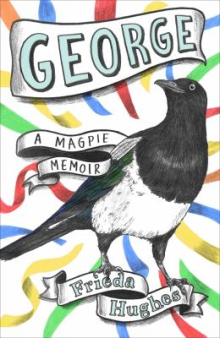
In the prologue to this memoir Frieda Hughes says, “The things I longed for, other than health, happiness and wealth, probably in that order, were plants, pets, and a home of my own that I would never have to move from. The plants and pets were the embellishment and confirmation of the permanent home and, therefore, the sense of stability and belonging that I craved.”
From her earliest memories, as a very young child, she craved and yearned for a stable permanent home, which for most of her life she did not have. She had a family, but they were never in one physical location for any length of time. Also, she was the daughter of two very well known poets, Sylvia Plath and Ted Hughes. For many years, being the child of two famous literary people had been puzzling and burdensome. Frieda was a person in her own right. Even as the years went on, as an adult who was an established painter, poet and literary critic, she was too frequently introduced as the daughter of …
Having lived in London for many years, at long last she found a property in Wales that met her needs. Her husband, at the time, “always maintained that he wanted to go back to Australia,” but the marriage was foundering, and she states, “In this book, although we were still married, I refer to him as The Ex.”
Once they arrived in Wales, Frieda began her all-consuming focus on redoing the landscape around the house. She visited garden centers and hauled back pots of plants and materials for making cement walls, raised beds and for securing pavers. With short breaks for lunch or tea, she would be outside late into the day, mucking about, shaping the landscape to suit her vision.
This memoir/autobiography, is in the form of a diary, and begins on Saturday, May 19 2007, when she noticed a pair of magpies building a huge nest that was quite an intricate masterpiece.The magpie couple "knitted this wooden bag for their babies; it hung in the highest of the branches like a dark lantern ... shaped like a tall, inverted pear, with a twiggy lid that was attached." A storm and fierce winds dislodged the nest, and a day or so later Hughes noticed "a feathered scrap" that turned out to be an injured baby magpie. Despite her careful assistance this baby chick and a second one died. However, there would be a third baby magpie, buried beneath 6 inches of dried leaves and woodchips who screeched out with “a deafening shriek [that] tore right through my eardrum ... It squatted belligerently, peering up at me with magpie fury." This was the chick that survived and would be called George, who would change her life and that of many other people in the most unimaginable ways. Frieda Hughes would never think of birds, in particular magpies, as having lesser brains than human beings.